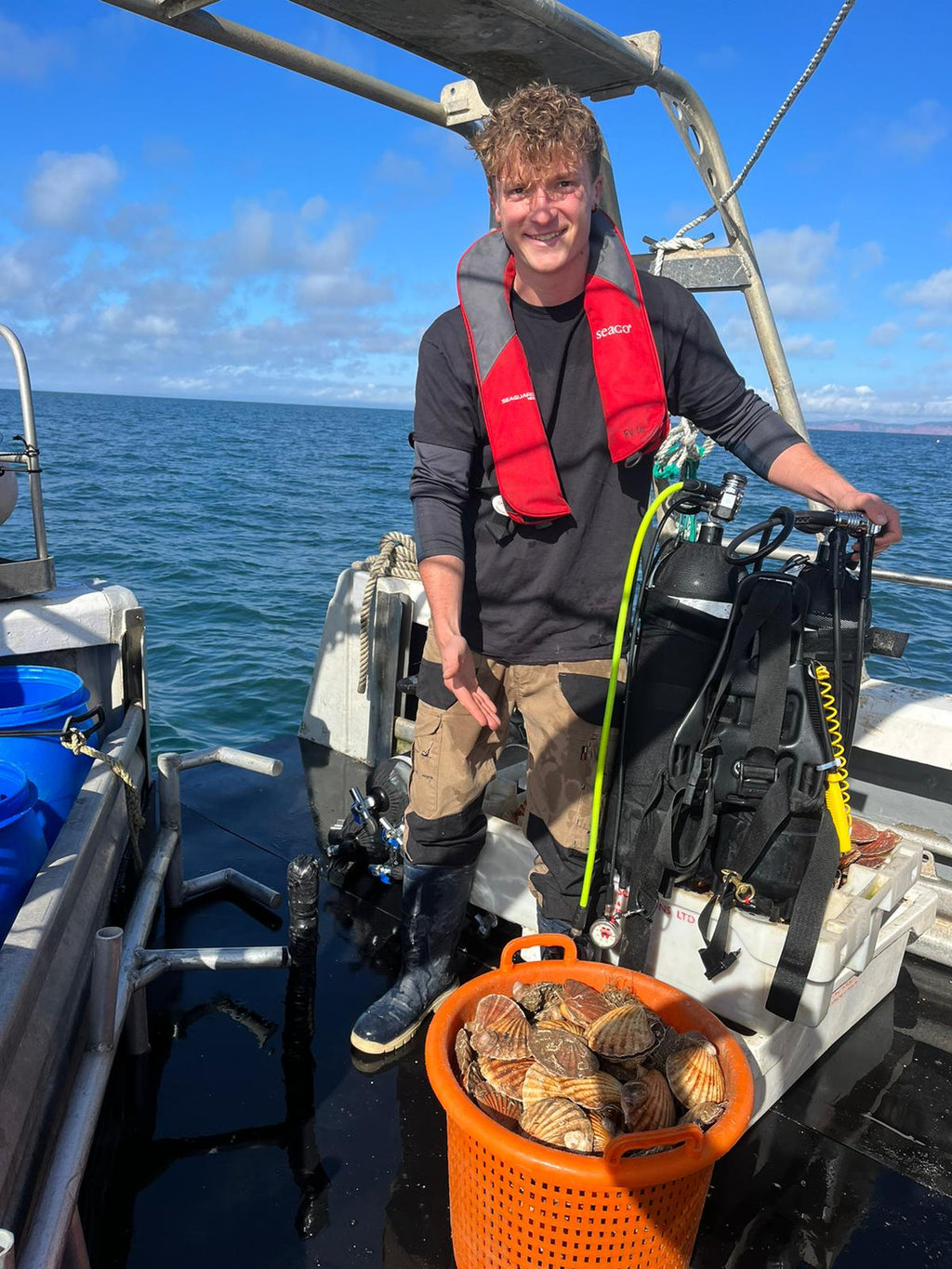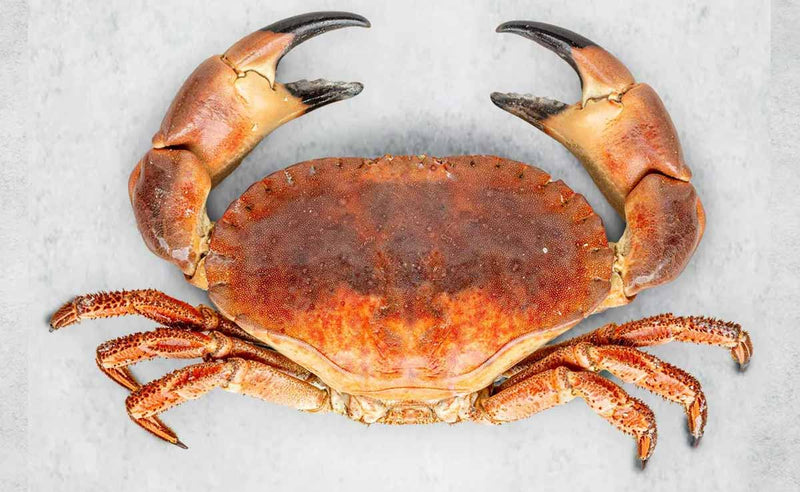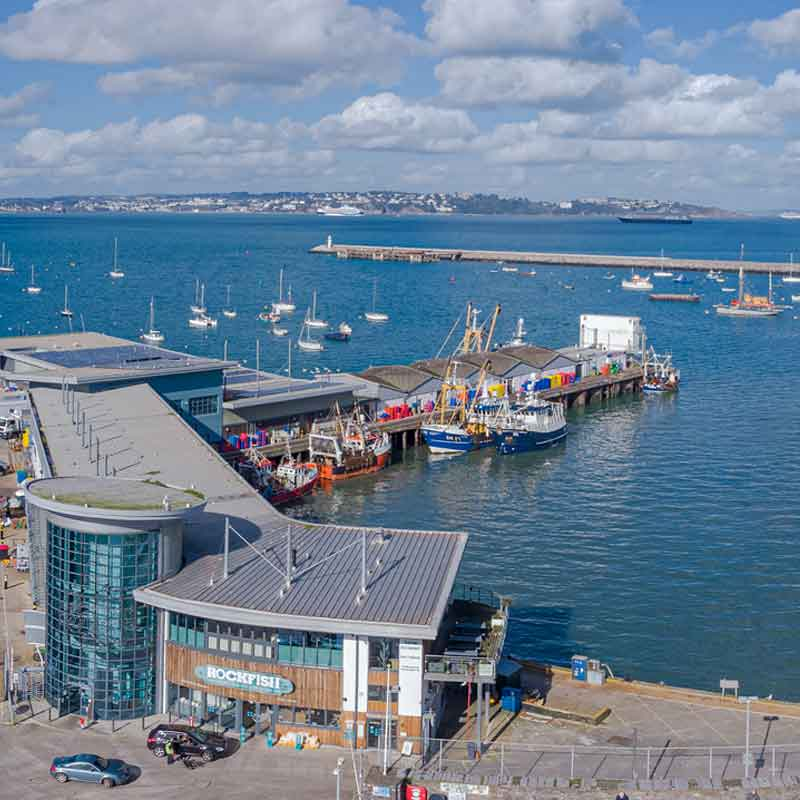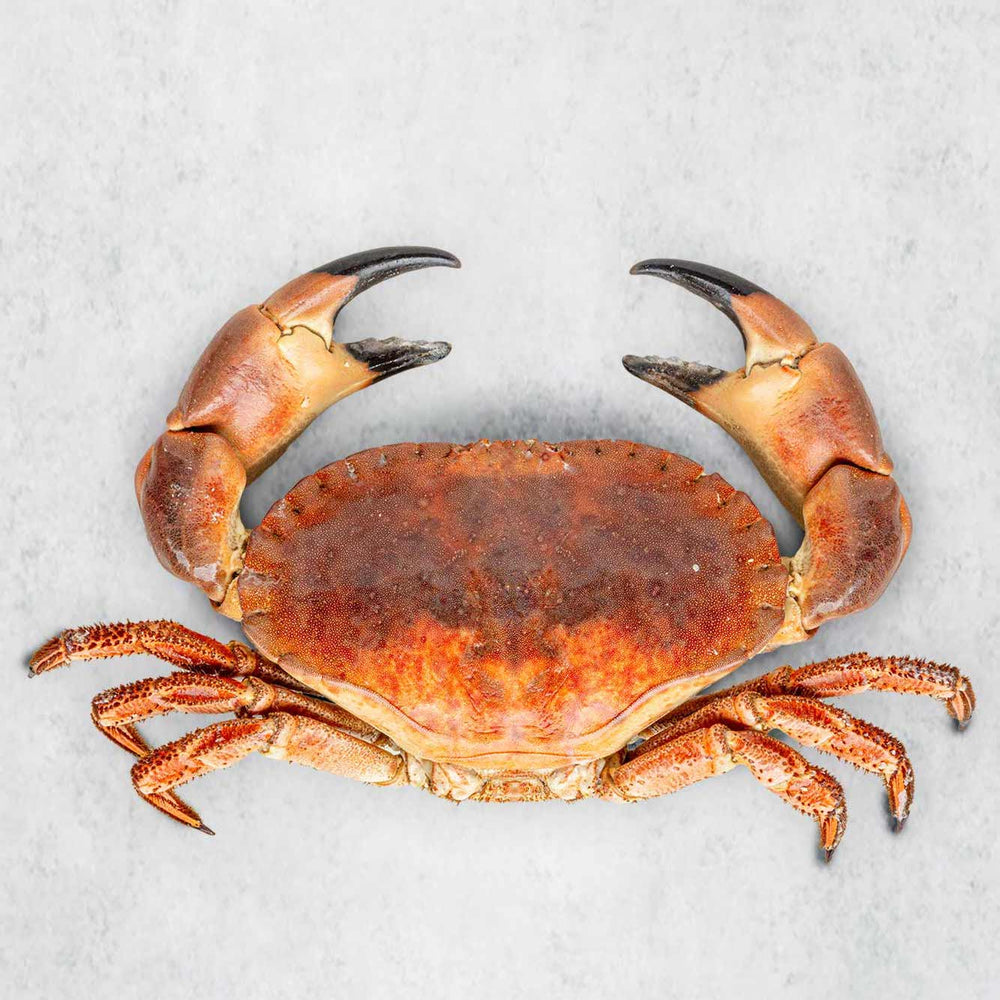The world's best scallops?
To anyone who’s never eaten seafood, or perhaps thinks they don’t like “fish” we always recommend scallops.
Why?
Because they’re mouth-wateringly delicious little meaty nuggets of sweet natural goodness!
Simply fried, at high heat, then doused in creamy, melted butter and served with nothing but a dash of lemon a scallop is perhaps the easiest thing you can cook, with maximum taste satisfaction.
We love scallops! And now with spring settling in we have access to some truly exceptional examples...
The scallops
The King Scallop, Pecten maximus, grow in abundance in our waters here in the UK. A scallop is a bivalve, growing best in areas where the current is less strong. Opting to seek shelter in quiet, settled bays and reefs.
As the turbulent storms of winter settle, the time has come where some very hardy scallop divers adorn their dry suits and brave the bone chilling May swash in search of this delicious bounty.
Diving for scallops is perhaps one of the lightest touch methods of seafood catching there is. In fact, it’s not really even a form of fishing. It’s more like foraging, but in the extreme. Although it may sound simple, blissful even, scallop diving is incredibly skilled work. Requiring professionals with years of experience to push their bodies to the limit, balancing a wicked variety of variables – tide, visibility, and water pressure – with an almost primal drive to seek out and hunt for food.
The diver
When you first meet a scallop diver you can instantly tell something is up. Anyone who spends their working day 30 metres below sea level has this look – much like a fighter pilot or a mountaineer – the look of someone who’s seen nature at its most raw.
One of the divers we work with – Ali – comes from a family of marine biologists. He cut his teeth diving in the Caribbean, teaching the children and mistresses of Russian oligarchs how to scuba.
Somehow the sunshine and bleached blonde sandy shores got boring for Ali, and he came back home to West Dorset where he discovered scallop diving.
On a clear day, in a good spot, Ali can collect over 2000 scallops by hand. He works the ocean floor individually picking up each scallop, filling mesh lined rope bag after bag.
Here in Lyme Bay, where Ali dives, the scallop grounds are rich. The bay is roughly the meeting point of the English Channel and the Atlantic. This confluence of two diverging oceans creates a plush marine environment, the water thick with nutrients and microplankton upon which a greedy filter feeder like a scallop can easily grow fat.
At the depths Ali works, oxygen is toxic. Instead, he breathes a specialised mix of nitrogen and oxygen. “It’s basically like breathing air plus”, says Ali, “your hangover clears almost instantly” he quips with a rogue smile, “the concentration basically means your body works at optimum performance”.
The bay
Since July 2008, the decision was made to ban all bottom-contact fishing activity in a designated 60 square mile area of Lyme Bay.
This special nutrient rich bay spans from Portland Bill in the East all the way along, beyond Brixham, to Start Point in the South Hams. The decision, despite controversy at the time, has resulted in a rich abundance marine activity, making for some very fabulous scallops.
“It’s like a museum down there” Ali says. “You head down, and you never know what you might find. From eery carpets of thin, spidery starfish called Brittle stars, to shell casings from World War II bombs!”
Being on the South Coast, the Lyme Bay waters are warmer than up in Scotland. “Our scallops therefore are naturally a little smaller on average than the great big dinner plate beasts you might find shipped down from Orkney”, Ali tells us. “However, they are certainly no less healthy, and no less tasty. In fact, I find our scallops down here in Devon have a very specific natural sweetness that far surpass the Scottish – but then again, I am very bias!”
We adore eccentricity at Rockfish. Those mad-bad-bravado tales from our local fishing community thrill us to our core. But even amongst local fishermen, few have quite as many hair-raising stories of life leagues beneath the sea as Ali does. It’s certainly safe to say Ali’s standard day in the office is as every bit as wild as his scallops are delicious. And we are forever in his favour for it!



